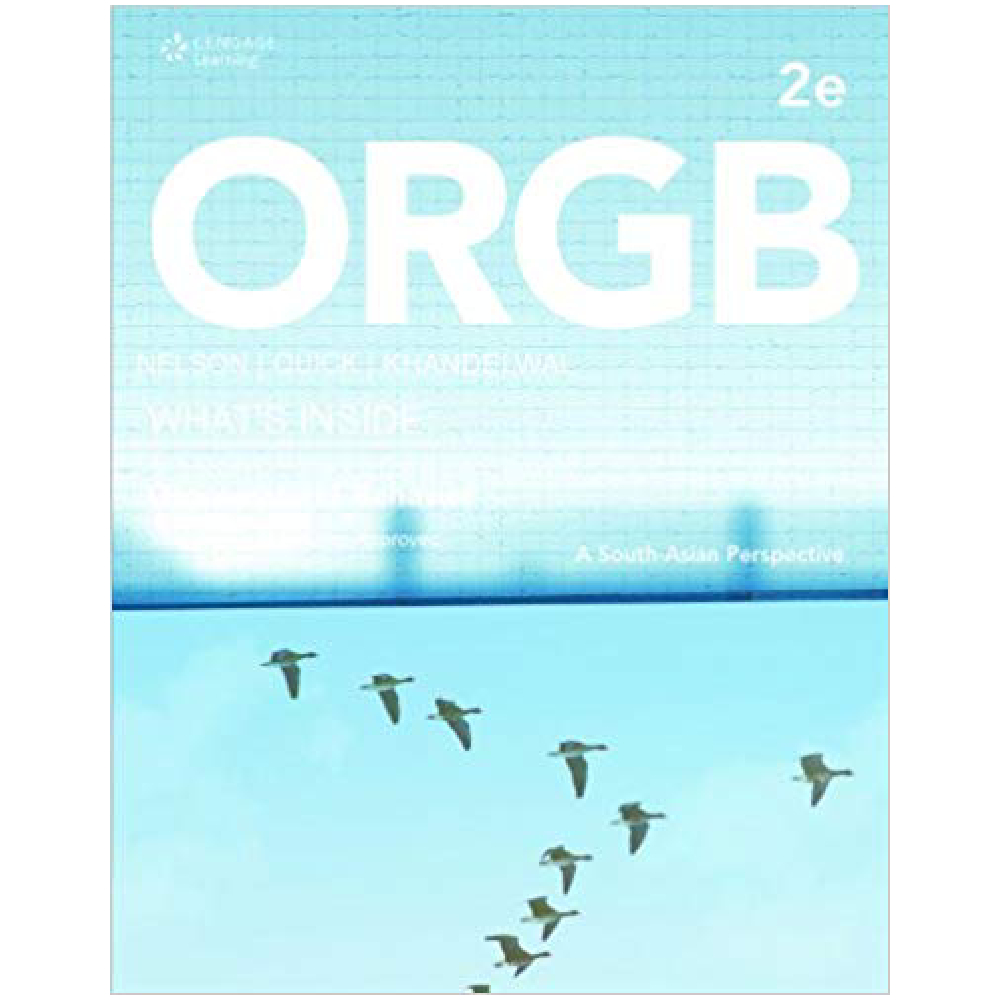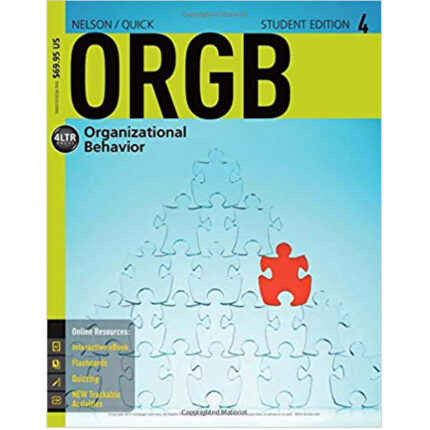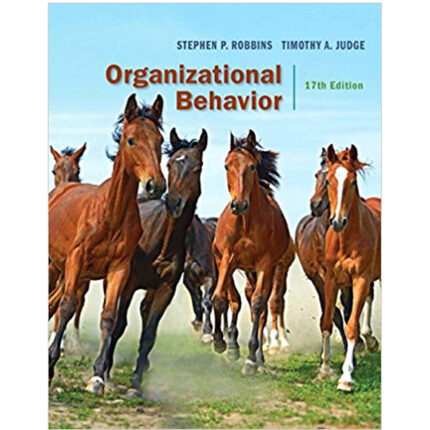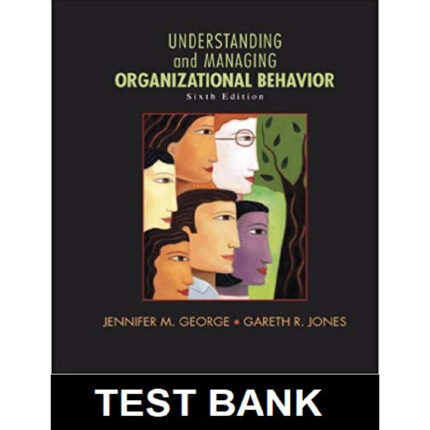Overview
CHAPTER 11
Power and political behavior
Chapter 11
1. The legitimacy inherent in one’s job is _____, whereas the ability to influence someone else is _____.
a. power; authority
b. influence; authority
c. authority; power
d. power; control
ANS: C PTS: 1 DIF: Moderate REF: p. 368
NAT: AACSB Reflective Thinking | Individual Dynamics TOP: The Concept of Power
MSC: K&C
2. If a person can affect the thoughts, behavior, and feelings of another person, she has:
a. influence
b. power
c. authority
d. dominance
ANS: A PTS: 1 DIF: Easy REF: p. 368
NAT: AACSB Reflective Thinking | Individual Dynamics TOP: The Concept of Power
MSC: K&C
3. If a manager asks an employee to purchase a gift for his wife, the employee would think this request:
a. falls within his zone of indifference
b. falls outside his zone of indifference
c. should be based on the manager’s authority base
d. is in conflict with the employee’s value system
ANS: B PTS: 1 DIF: Moderate REF: p. 368
NAT: AACSB Reflective Thinking | Individual Dynamics TOP: The Concept of Power
MSC: appl.
4. Enlarging an employee’s zone of indifference is accomplished by:
a. the use of authority
b. the use of power
c. the use of effective communication techniques
d. eliminating cognitive dissonance
ANS: B PTS: 1 DIF: Moderate REF: p. 368
NAT: AACSB Reflective Thinking | Individual Dynamics TOP: The Concept of Power
MSC: K&C
5. Suppose a manager asks an employee to purchase a birthday gift for manager’s wife. If the employee is to complete this request, which of the following is most true?
a. The request falls outside the employees zone of indifference and will therefore be performed.
b. The manager must enlarge the zone of indifference with power.
c. The manager must use his/her authority.
d. All of these
ANS: B PTS: 1 DIF: Moderate REF: p. 368
NAT: AACSB Reflective Thinking | Individual Dynamics TOP: The Concept of Power
MSC: analysis
6. The range in which attempts to influence the employee are perceived as legitimate and are acted on without a great deal of thought is known as:
a. the principal/agent relationship
b. agency theory
c. the zone of indifference
d. congruency
ANS: C PTS: 1 DIF: Easy REF: p. 368
NAT: AACSB Reflective Thinking | Individual Dynamics TOP: The Concept of Power
MSC: K&C
7. Enlarging an individual’s zone of indifference is best accomplished through:
a. authority
b. politics
c. power
d. influence
ANS: C PTS: 1 DIF: Hard REF: p. 368
NAT: AACSB Reflective Thinking | Individual Dynamics TOP: The Concept of Power
MSC: K&C
8. As a management trainee, you are assigned to a mentor and gain considerable insight into the nature of management and how to behave in different managerial situations. The relationship you have with the mentor is based on _____ power.
a. reward
b. legitimate
c. referent
d. expert
ANS: C PTS: 1 DIF: Moderate REF: p. 369
NAT: AACSB Analytic | Individual Dynamics
TOP: Interpersonal Forms of Power MSC: analysis
9. Assume you are a senior accounting major. A friend who is taking a Principles of Accounting course seeks you out for tutorial assistance. This is an example of _____ power.
a. reward
b. expert
c. referent
d. legitimate
ANS: B PTS: 1 DIF: Easy REF: p. 369
NAT: AACSB Analytic | Individual Dynamics
TOP: Interpersonal Forms of Power MSC: appl.
10. Which of the following power sources is LEAST likely to be available to a non-supervisory, technical employee?
a. expert
b. referent
c. knowledge
d. legitimate
ANS: D PTS: 1 DIF: Moderate REF: p. 369
NAT: AACSB Reflective Thinking | Individual Dynamics
TOP: Interpersonal Forms of Power MSC: appl.












Reviews
There are no reviews yet.